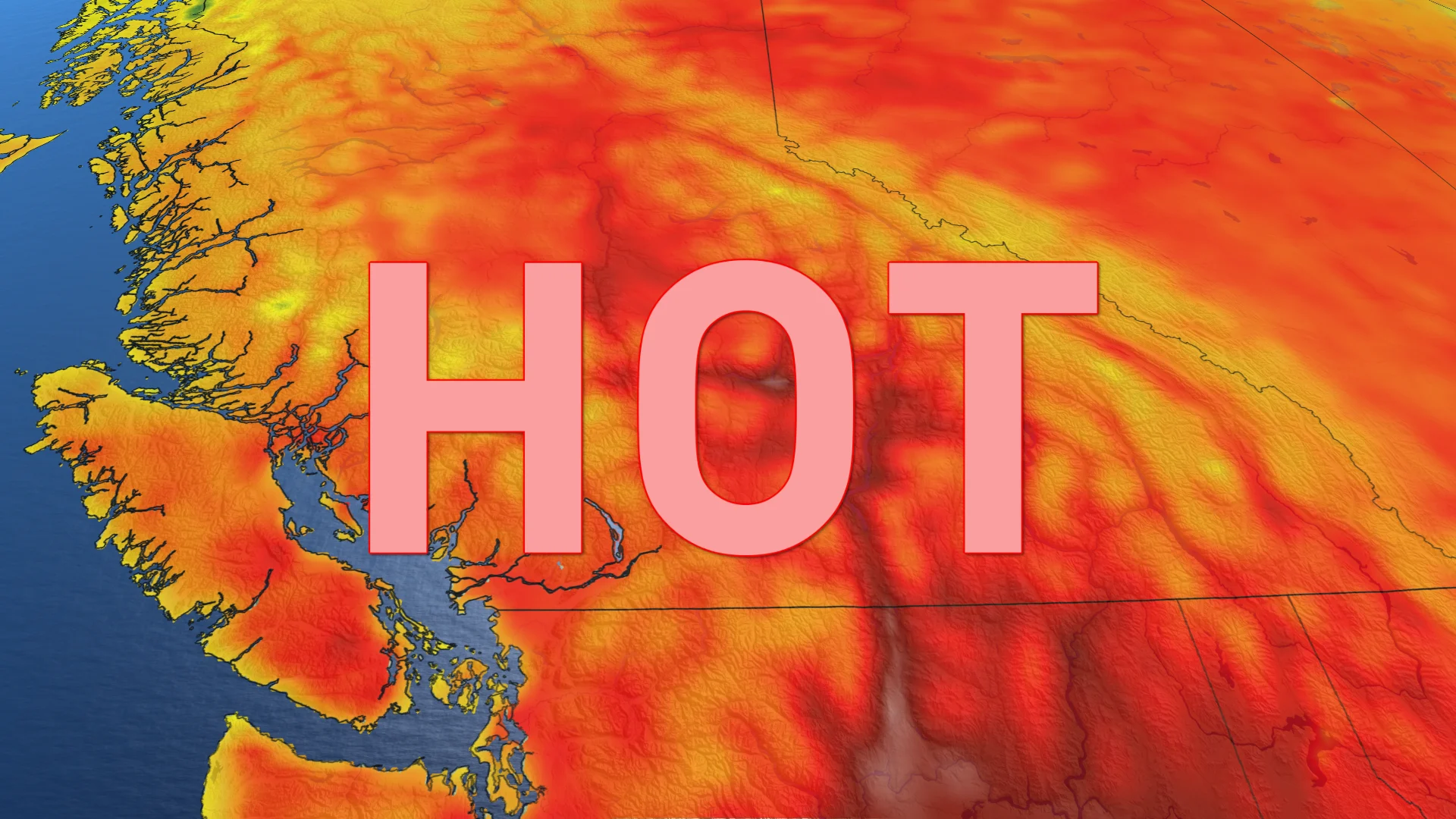
Sweltering, relentless heat sets records in B.C., wildfire risk increases
B.C. set some new temperature records this week after heat usurped previous high tallies. The heat will continue to pose a risk to health and it may ignite new wildfires.
Folks across B.C. are feeling the heat as temperatures have rapidly climbed to high levels, even becoming Canada's hottest daytime values, even for short periods of time.
While the extreme heat eases for coastal areas, a ridge of high pressure over the Southern Interior continues to bring very high temperatures in the mid-to-upper 30s.
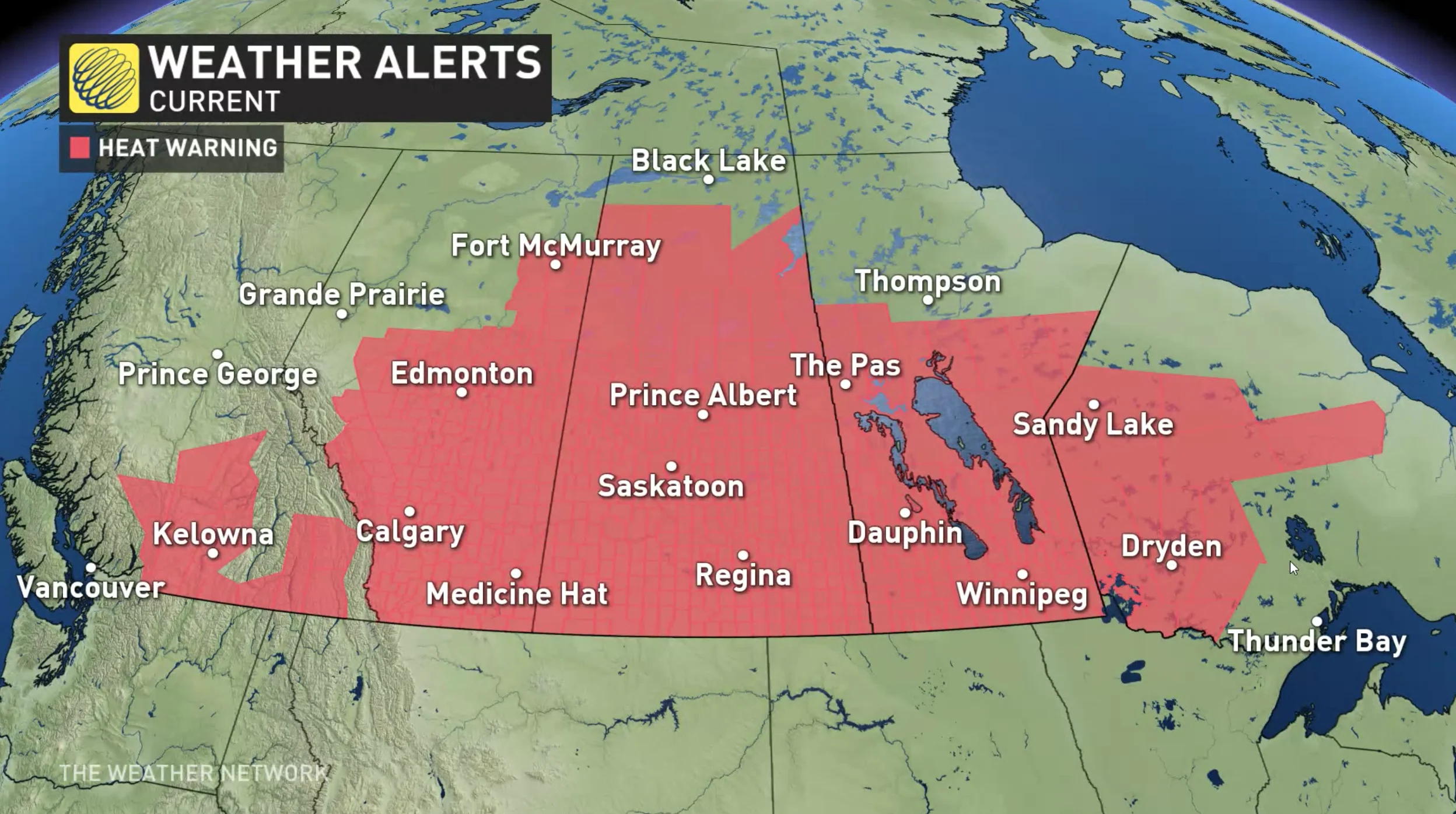
Heat warnings Thursday morning (July 11)
"These temperatures are expected to moderate starting tomorrow [July 12] but will remain elevated and warnings might continue into the weekend for some regions," says Environment Canada and Climate Change in a heat warning on Thursday.
DON'T MISS: Lightning and wildfire risk prompts B.C.-wide campfire ban
The heat, originating from a California-positioned heat dome, has already given Canada multiple 40-degree temperatures, including its first of the year.
Ashcroft reached 40.3°C on Sunday, July 7, and was at the time, hot enough to make it Canada's new hot spot so far this year. However, on Monday, Lytton soared to 42.4°C, surpassing Ashcroft's Sunday temperature.

And then, on Tuesday afternoon, not to be bested, Lytton reached 42.5°C –– making it the new, warmest day of 2024 in Canada.
As with any prolonged heat event, there are health risks associated for those in vulnerable populations who may be more susceptible to the warmer conditions.
Record heat
Parts of B.C.'s South Coast started feeling the heat on Friday, July 5, reaching between the mid-20s to the lower 30s across the region.
Across the southern Interior, temperatures reached the low- to mid-30s on Sunday, July 7, before starting to climb to the mid-to-upper 30s early this week.
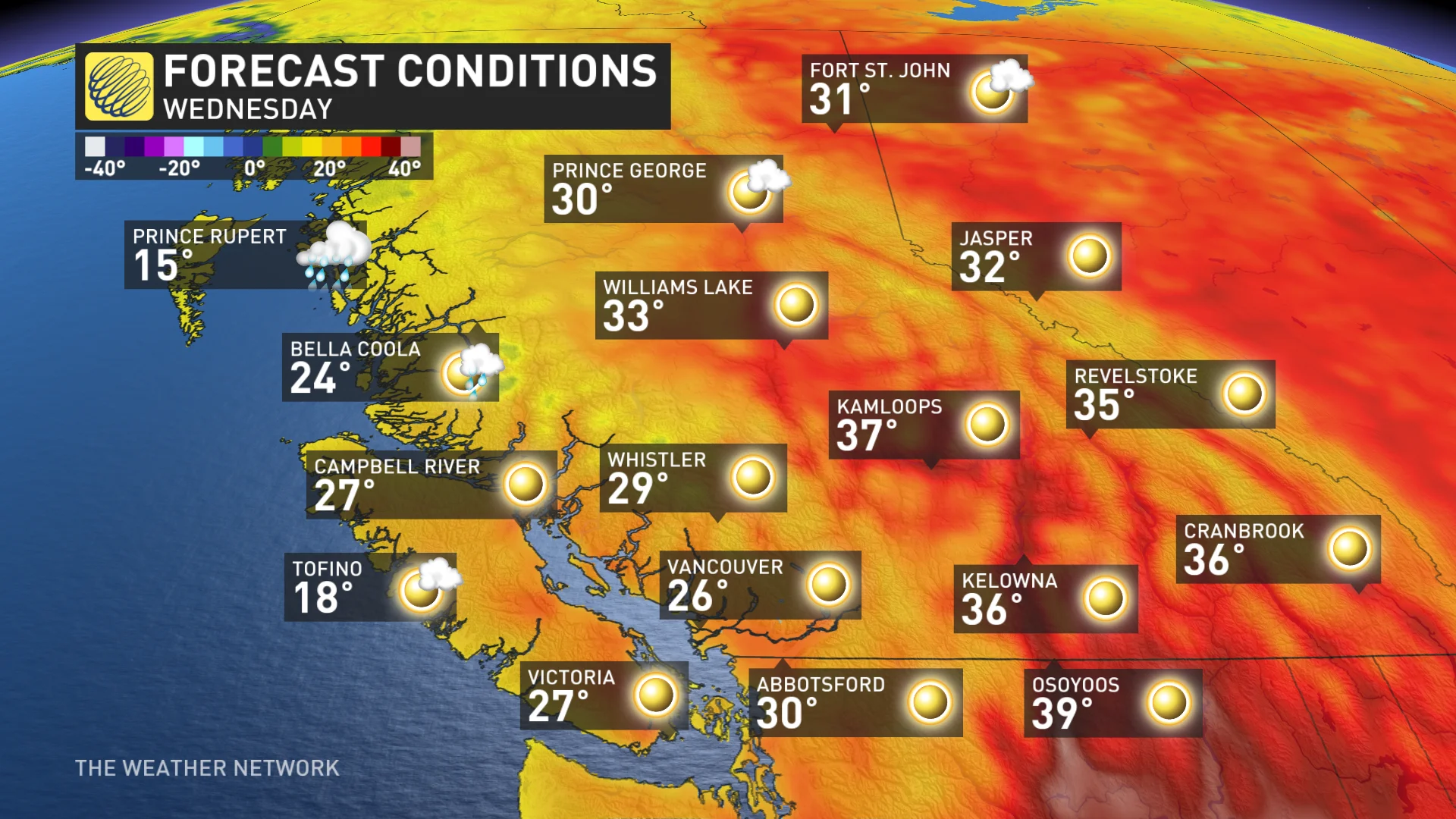
Tuesday of this week was the final hot day for the coast, with temperatures peaking at 23–28 °C, and up to 40 °C in the Interior. On Tuesday afternoon, Lytton reached 42.5°C –– making it the new, warmest day of 2024 in Canada.
Heat continues for the southern B.C. Interior
Heat warnings are in effect for southern B.C. Interior, where a ridge of high pressure over the region will continue to result in high temperatures—in the 30-40-degree range—into the weekend.
SEE ALSO: Staying hydrated on a hot day is a lot more important than you think

Forecast from Wednesday, July 10, to Tuesday, July 16. (The Weather Network)
The coast, meanwhile, will get some cooling, with more of an onshore flow. However, no rain is forecast over the next week or so across the southern area of the province.
As a result of the heat, the wildfire danger is increasing rapidly.
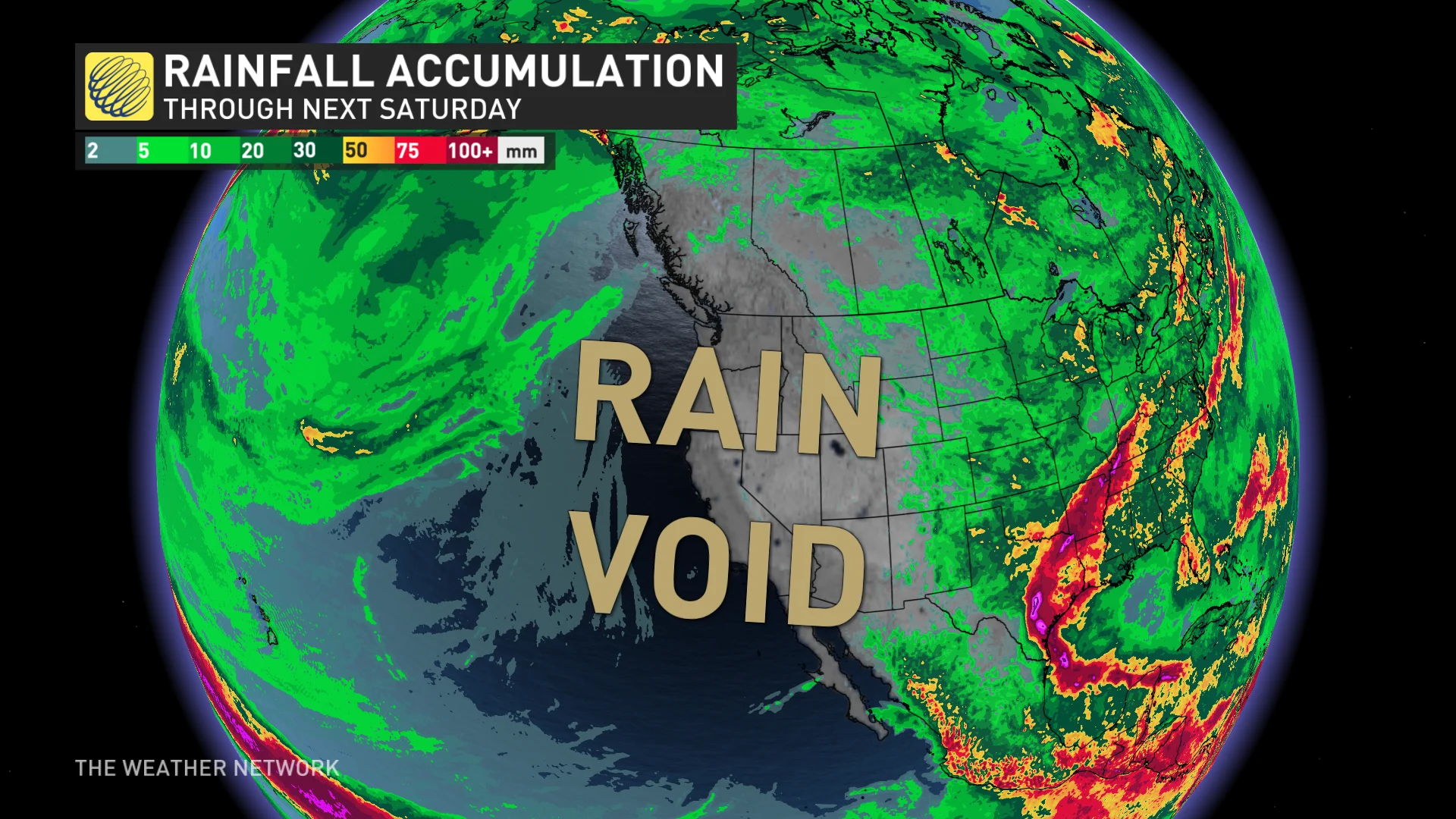
Graphic shows no rain through Saturday, July 13. (The Weather Network)
The ridge of high pressure is diverting any moisture in the atmosphere towards Northern Canada, increasing drought conditions and making the province more vulnerable to wildfires.
For example, last weekend saw most of the province in the low fire danger rating, but on Monday, the South Coast faced a high fire rating designation.
DON'T MISS: Latest wildfire news across Canada and beyond
Province-wide campfire ban
On Tuesday, the province said it will be banning campfires across B.C. starting at noon on Friday, July 12, CBC reported. The sole exception to the ban is in the Haida Gwaii Forest District.
The ban is being put into place due to the risk of increased wildfire starts as a cold front sweeps across northern B.C., bringing with it strong winds, thunderstorms and the potential for dry lightning.
To learn more about the campfire ban, click here.
Heat safety
In prolonged heat events such as this, it is crucial to remember to drink plenty of water, avoid strenuous outdoor activity, and check in on those who are at the highest risk of developing heat-related illnesses.
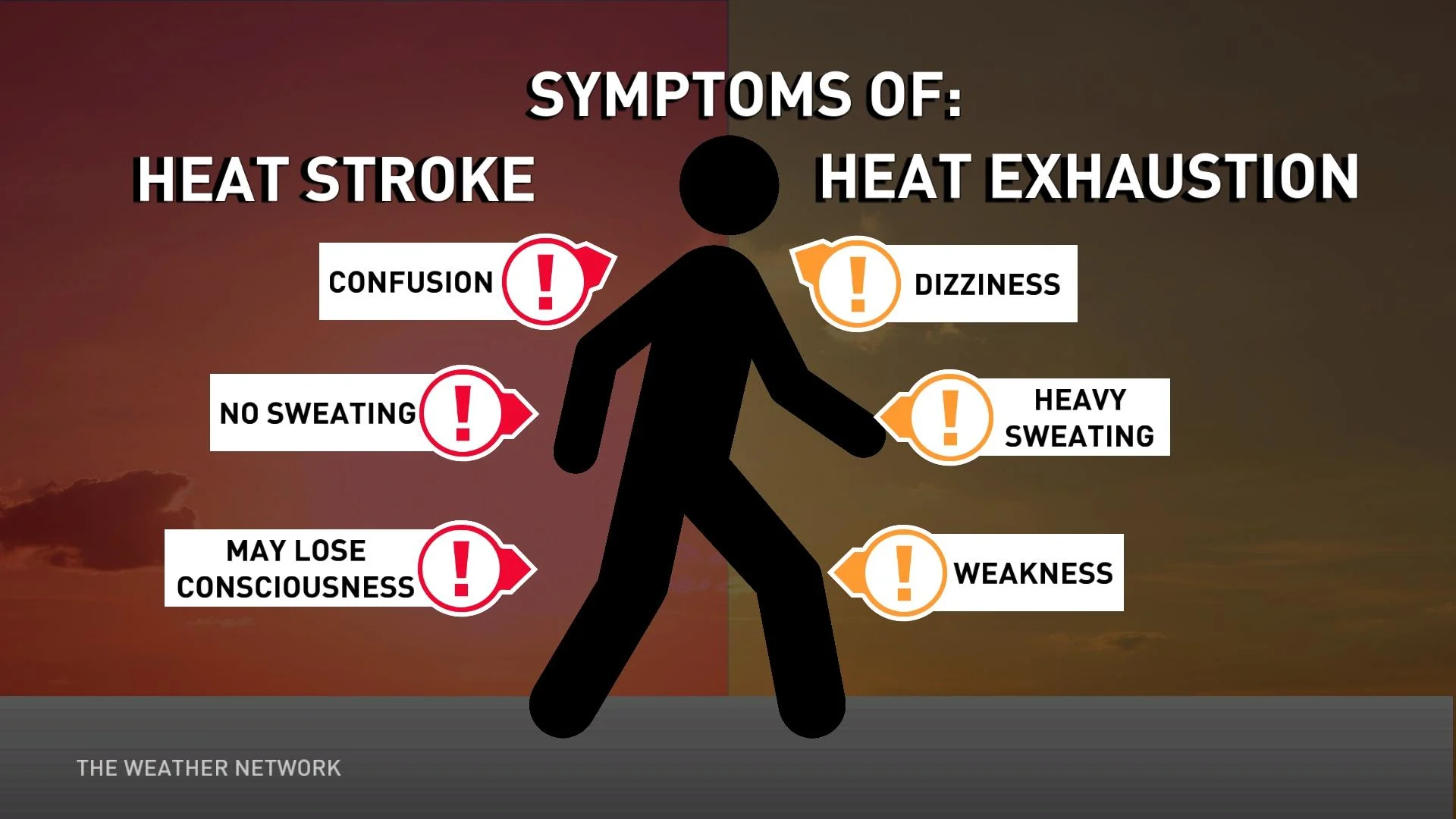
On average, five million people die around the world each year due to extreme heat events. There has also been proof that stress from the extreme heat can cause damage to your brain, liver, and gut functions.
The Canadian Red Cross also recommends taking frequent breaks while working outside, wearing a hat while outdoors, and avoiding drinking caffeine and alcohol as they can cause dehydration.

Stay with The Weather Network for more forecast information and updates on your weather across Canada.











